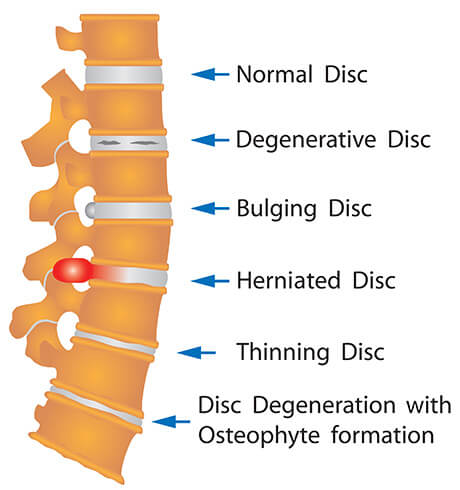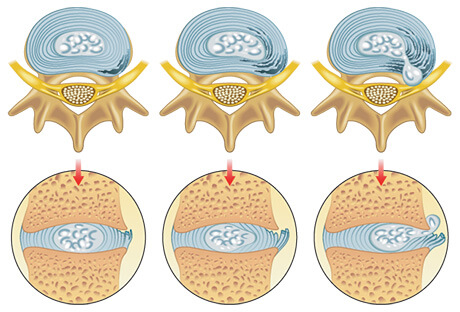Pain down my leg – What’s causing it?

The bones or vertebrae that form the spine in your back are cushioned by small, spongy discs. When these discs are healthy, they act as shock absorbers for the spine and keep the spine flexible. But when a disc is damaged, it may bulge or break open. This is called a herniated disc. A herniated disc is by far the most common cause of sciatica.
When speaking of lumbar disc pathology confusion can often come about as there are many terms that are commonly used to describe the condition. These terms include: annular tears, bulging disc, disc protrusion, slipped disc, herniated disc, ruptured or extruded discs, sequestered disc, disc degeneration (or degenerative disc disease), pinched nerve and sciatica.
Sciatica is a term that refers to irritation of the sciatic nerve, which comes out of your lumbar and sacral spine. When people irritate a nerve in the back — for example, from a disc herniation — they can irritate the sciatic nerve. It is the longest nerve in the body, running from the lower back through the back of the thigh, and innervates all the muscles below the knee, all the way down to the foot. The sciatic nerve also has branches into the hip, buttock and hamstring regions.
Lumbar disc herniations are one of the most common causes of low back pain. The peak occurrence is between the ages of 25-40. Males are affected more than women by a ratio of 3:2. About 90% of all lumbar disc herniations occur between the fourth and fifth lumbar vertebrae and fifth lumbar vertebrae and sacrum.
For most people with a herniated disc, low back pain is the initial symptom. This pain may last for a few days, then improve. It is often followed by the eventual onset of leg pain, numbness, or weakness. This leg pain typically extends below the knee, and often into the foot and ankle. It is described as moving from the back or buttock down the leg into the foot.

Symptoms may be one or all of the following:
- Back pain
- Leg and/or foot pain (sciatica)
- Numbness, burning or a tingling sensation in the leg and/or foot
- Weakness in the leg and /or foot
- Coughing, Sneezing and Laughing may increase the pain.
- The patient may not be able to sit prolonged
- Loss of bladder or bowel control (extremely rare). This may indicate a more serious problem called cauda equina syndrome. This condition is caused by the spinal nerve roots being compressed. It requires immediate medical attention.
Not all patients will experience pain as a disc degenerates. It remains a great challenge for the doctor to determine whether a disc that is wearing out is the source of a patient’s pain.
